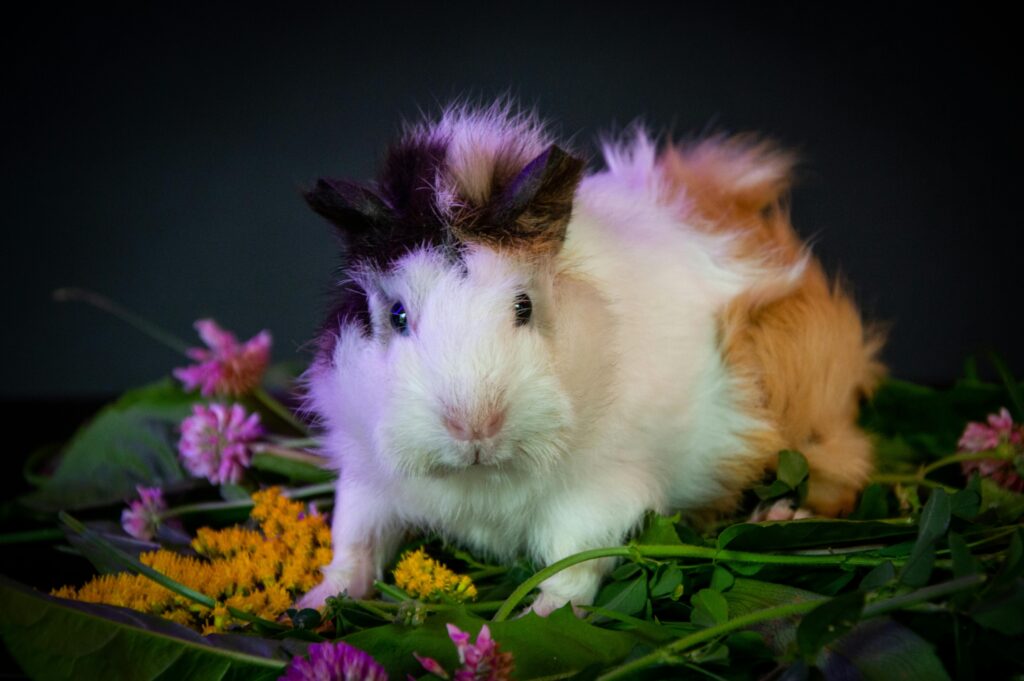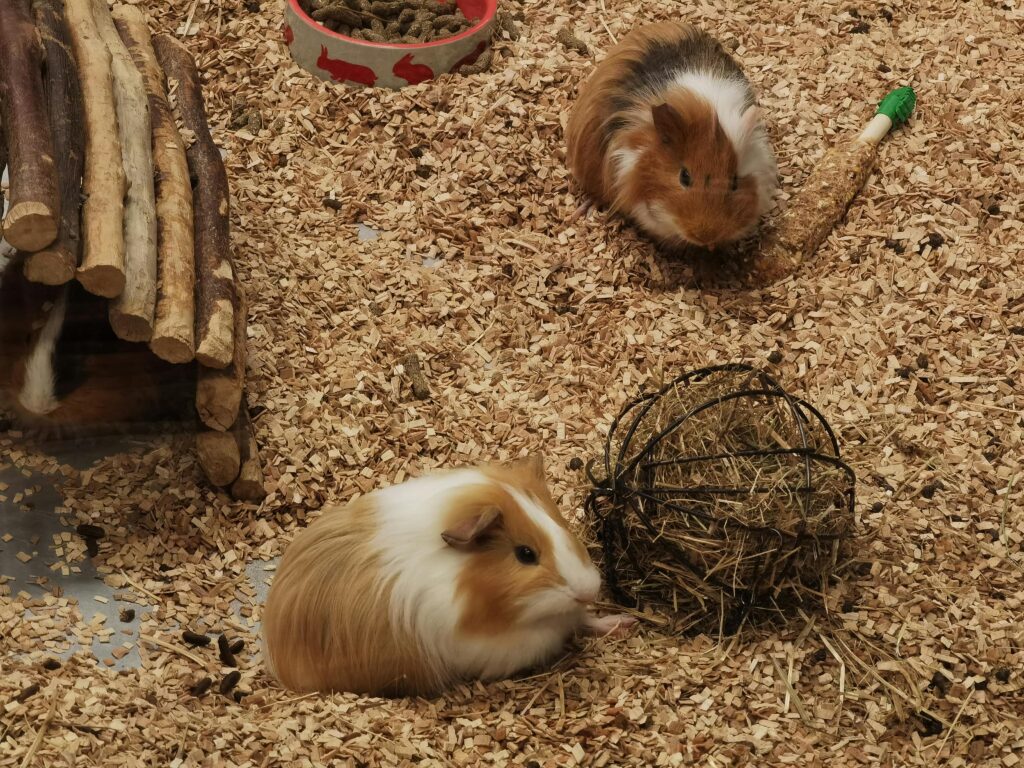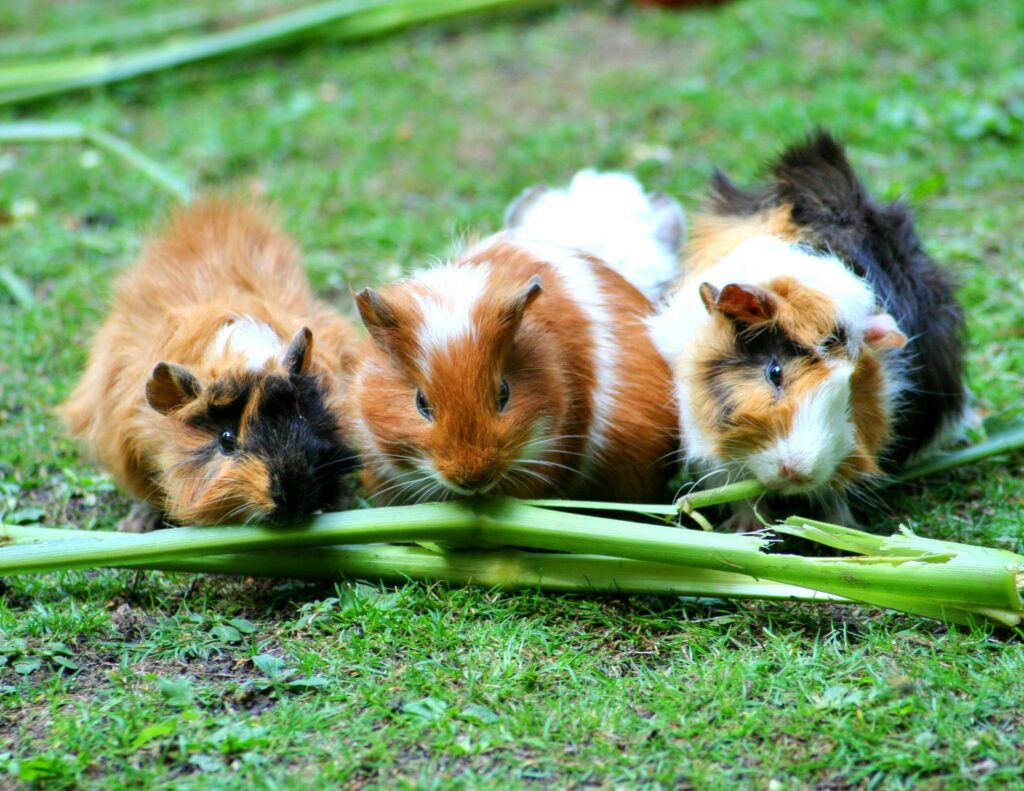
Written by: Bren Parker
Guinea pigs, also known as cavies, are among the most popular American small pets due to their gentle nature and relatively low maintenance needs. Native to the Andes in South America, guinea pigs were originally domesticated by the indigenous people and have since become beloved companions worldwide. Whether you’re a first-time pet owner or looking to expand your pet family, understanding the needs of a guinea pig is essential for providing them with a happy and healthy life.
The Nature of Guinea Pigs
Guinea pigs are small social rodents usually weighing between 1.5 to 2.5 pounds with a body length of about 8 to 10 inches. They have an average lifespan of 4 to 6 years, although some can live longer with good care. Guinea pigs are not nocturnal, as many other rodents are, and are most active during the day. This makes them great pets for those who want to interact with their pets regularly. These animals are also known for their wide range of vocalizations, such as chirping and purring, which are used to communicate.
Housing and Environment

As with any other pet, providing the right environment is crucial for guinea pigs’ health and well-being. They need a spacious cage with good ventilation and enough room to move around comfortably. A minimum cage size of 7.5 square feet is recommended for one guinea pig, and larger is better if you plan on having more than one. The cage should have solid, non-wire floors to prevent injury to their small feet. You can line the floor with soft bedding such as paper-based bedding or hay, which is both absorbent and comfortable for the guinea pig. Paper-based bedding, as opposed to wood shavings, is preferred.
Guinea pigs are sensitive to temperature extremes. A room temperature of around 65°F to 75°F (18°C to 24°C) is ideal. Make sure their living area is away from direct sunlight, drafts, or sources of heat. They thrive in a calm, quiet environment, so keeping their cage in a low-traffic area of your home will help reduce stress.
Diet and Nutrition
Guinea pigs are herbivores and require a balanced diet to stay healthy. Their main food source should be unlimited access to high-quality hay, such as timothy hay, which is essential for their digestive health and helps wear down their ever-growing teeth. Guinea pig-specific pellet food provides basic nutritional needs and is available ar most pet shops and online. Make sure the pellet food is quality and contains adequate vitamin C as guinea pigs need this for basic good health. Fresh vegetables should also be provided daily, including leafy greens like romaine lettuce or spinach. Avoid iceberg lettuce, as it has little nutritional value.
Fresh fruit can be offered as an occasional treat, but only in moderation due to its sugar content. Guinea pigs also require vitamin C, as they cannot produce it on their own. To meet this need, you can provide vitamin C-rich vegetables like bell peppers, or purchase vitamin C supplements in the form of drops or chewable tablets.
Never feed chocolate or caffeine to a guinea pig as these are toxic. Avoid sugar and high-fat treats, as guinea pigs’ intestinal tracts are not adapted to digest these foods and can become seriously ill.
Clean water should always be available to your guinea pig, ideally in a water bottle that is easy for them to drink from without spilli
Social Needs and Exercise

Guinea pigs are social animals that thrive on interaction. They are happiest when housed with other guinea pigs ( same sex if you don’t want a litter), as long as they are introduced properly. A lonely guinea pig can become stressed and may develop behavioral problems. If you’re planning to get more than one, be sure to provide a large enough cage for them to coexist peacefully.
Daily playtime and exercise outside of their cage are also important for their physical and mental health. Guinea pigs enjoy exploring their environment, so giving them a safe, enclosed space to roam can help them burn off energy. Provide them with toys to chew on and tunnels to hide in, which also cater to their natural instincts. Little indoor playpens and fun-runs are available if you don’t want them running lose through the house.
Grooming and Health Care
Although guinea pigs are generally low-maintenance in terms of grooming, regular brushing is important, especially for long-haired breeds. Additionally, their nails should be trimmed every month to prevent discomfort or injury.
Guinea pigs can be prone to dental issues, so it’s important to ensure they have access to hay and chew toys to keep their teeth properly worn down. Regularly check for signs of illness, such as changes in appetite, behavior, or droppings. Any signs of illness should prompt a visit to a vet who specializes in small animals.
Why Guinea Pigs Make Great Pets
Guinea pigs are not only adorable but also offer great companionship. They are gentle, easygoing creatures and very easy to care for Their social nature means they can form strong bonds with their owners, making them interactive and affectionate pets. Guinea pigs also enjoy attention, and many will respond to their names or follow their owners around.
These little guys are often mistakenly viewed as pets for children. While they can make great pets for kids who have been properly taught how to handle and care for animals, guinea pigs are also a great choice for animal lovers who are seeking a pet that is low maintenance and requires less time and investment than a dog or cat.
In conclusion, guinea pigs make excellent pets for individuals or families willing to provide them with the care and attention they need. By creating a proper living environment, offering a healthy diet, ensuring plenty of interaction, you can ensure your guinea pig thrives and brings joy to your life for many years.